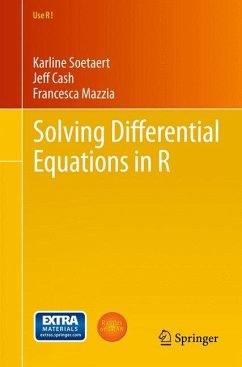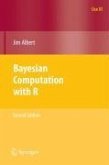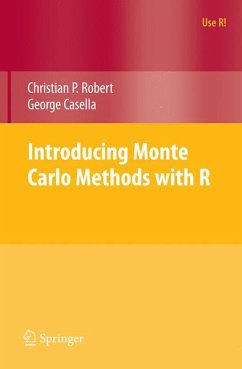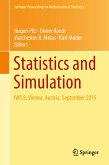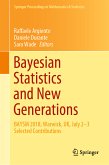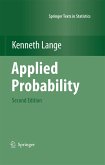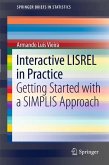Dieser Download kann aus rechtlichen Gründen nur mit Rechnungsadresse in A, B, BG, CY, CZ, D, DK, EW, E, FIN, F, GR, HR, H, IRL, I, LT, L, LR, M, NL, PL, P, R, S, SLO, SK ausgeliefert werden.
"This useful work ... focuses on how to numerically solve differential equations. ... it will give helpful insight to those who have studied differential equations before and who want to become more knowledgeable about solving them numerically using R, an open-source programming language. ... Overall, the book covers the necessary topics for readers to get a good taste of numerically solving differential equations in a variety of applications. Summing Up: Recommended. Upper-division undergraduates, graduate students, and faculty." (S. L. Sullivan, Choice, Vol. 50 (6), February, 2013)
"The book ... describes the present stage of development of the R packages intended to solve differential equations. ... I strongly recommend the book to all courses in ODE's and numerical ODE's ... . It can be as well an interesting source of problems for students enabling them to test lectured topics and experiment with new models. ... experts in the field can find in the book tasty remarks on the state of the art of numerical methods for differential equations." (Andrzej Palczewski, Mathematica Applicanda, Vol. 41 (1), 2013)
"An invaluable aid for learning almost from scratch about a quite comprehensive collection of types of differential equations, and their implementation in R ... . I strongly recommend this work as a companion for most courses on differential equations, as it would enable students to try to implement applications akin to those discussed. Even theoreticians will find a nice review of the history and state of the art of some methods for solving differential equations." (Arturo Ortiz-Tapia, ACM Computing Reviews, October, 2012)
"The book in general deals with the numerical methods implemented to different differential problems. ... The main thing that differentiates this book from others is the fact that the authors propose to use for this purpose some non-specific programmingenvironment such as R. ... the authors manage to convince the reader about the ability to use this software to solve differential problems. ... they show its potential benefits." (Ivan Secrieru, Zentralblatt MATH, Vol. 1252, 2012)

